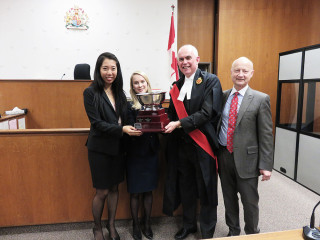Another Victory for Medical Malpractice Plaintiffs at The Court of Appeal
Following up on recent successes at the Court of Appeal and Supreme Court of Canada, plaintiffs in medical malpractice cases received another victory earlier this month in Champoux. The Court of Appeal found that the trial judge’s reasons for dismissing the claim were insufficient, did not permit proper appellate review and sent the matter back for retrial. The Court of Appeal also gave important reasons on the defendant’s attempt to withdrawal an admission made in a Request to Admit.
Factual Background
The Plaintiff, Ms. Champoux, attended Kirkland Lake Hospital for an abscess on her buttocks and hyperglycemia. She had related underlying health problems. Her vital signs were taken, and a blood sugar reading done. Her heart rate was elevated, and her blood sugar level was 11.6 (though records suggested this was not uncommon for her). She was sent home. Three days later, she returned to the emergency department because her abscess had grown rapidly, and her blood sugar was higher. She was admitted and surgery was performed to drain the abscess. The trial decision (2019 ONSC 5143) suggests that there were numerous complications after this point, all of which led to a lengthy and difficult period of recovery for the plaintiff. She brought an action against Dr. Jefremova, the emergency room doctor who sent her home upon her first presentation to hospital with the abscess.
The trial judge dismissed the case against the defendant. The location of the abscess on the plaintiff was central to the trial judge’s decision. The plaintiff alleged it was a perianal abscess, whereas the defendant alleged it was located on the left buttock cheek. The expert evidence presented by both sides suggested that there were numerous areas of contention at trial. The Court of Appeal found that the trial judge failed to deal with many of them, including but not limited to:
- Whether the standard of care breached when the plaintiff was sent home without the defendant knowing why her heart rate was elevated and her blood sugars uncontrolled?
- Whether the plaintiff’s expert was correct in his criticism of the defendant when he said that she failed to undertake appropriate testing of the plaintiff?
- Whether the plaintiff’s expert was correct when he opined that the standard for all abscesses is immediate incision or drainage once they are diagnosed?
- Whether the defendant’s expert was correct when he testified that there were two abscesses, one on the buttocks and an ischiorectal one that was discovered during surgery?
- Why the trial judge preferred the defendant’s expert and considered his experience more applicable to the case at bar when he testified that he had never aspirated an abscess or seen it performed?
- Whether the standard of care was breached by the defendant in delaying treatment?
Since these issues were not addressed in the trial decision, the Court of Appeal remitted the matter back for a retrial.
Request for Withdrawal
Before doing so, however, the Court of Appeal also commented on the defendant’s attempt to withdraw an admission made by way of Request to Admit as to the location of the abscess. Defending counsel advised that the Answer to the Request to Admit in question was served inadvertently. The Request to Admit asked the defendant to admit that the abscess in question was a perianal abscess. The defendant, inadvertently according to counsel, denied the request on the basis that “…[the plaintiff] presented with a buttock abscess/swollen nodule in the general perianal area”. This admitted fact was helpful to the plaintiff. The defendant argued that the facts were not binding because they were offered in the context of a refusal. The Court of Appeal quickly dismissed this argument on the basis that:
The purpose of request to admit procedures — to save time and costs by narrowing the facts in issue, would be undercut if litigants could deny a fact in a Request to Admit on the basis that an alternative set of facts is accurate, but then treat those proffered alternative facts as non-binding. That approach would obfuscate rather than clarify what facts are in issue.
Furthermore, while the trial judge ultimately dismissed the motion to withdraw the admission on the basis that the fact did not raise a triable issue in respect to the truth of the admission (or the first branch of the Antipas/Liu test), he nonetheless decided that the facts stipulated to in the admission were not proof on a balance of probabilities as to the location of the abscess. The Court of Appeal found that this contradictory reasoning, i.e. that the judge first found that the admission did not raise a triable issue as to its truth while, at the same time, “…he undertook an analysis as to whether it was true and found that it was not true.” The Court of Appeal reiterated that a formal admission is to be treated as conclusive of that fact and is binding on the trier of fact, even if there is other evidence in the record that might contradict it. In this case, the trial judge’s decision to interpret the admission worked a significant prejudice to the plaintiff who undoubtedly based her trial strategy on its acceptance as fact.













